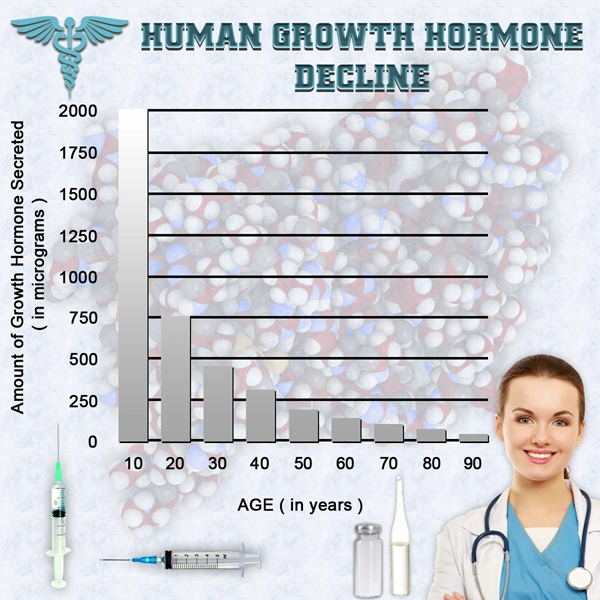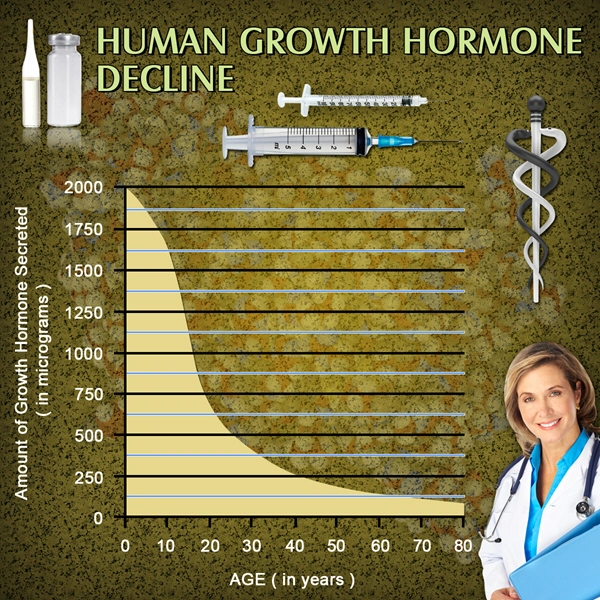Introduction to Erection Physiology
The phenomenon of an erection is a marvel of human physiology, intricately linked to both the physical and psychological well-being of a man. An erection is not merely a physical response but a complex interplay of neural, vascular, and hormonal systems. Understanding the physiology of an erection is crucial, especially when addressing issues like erectile dysfunction (ED), a condition that affects millions of American men.
The Neurovascular Symphony
At the heart of an erection lies the penis, a highly vascular organ that responds to sexual stimuli. The process begins in the brain, where sexual thoughts or physical stimulation trigger the release of neurotransmitters such as nitric oxide. This chemical messenger plays a pivotal role in relaxing the smooth muscles of the penile arteries, leading to vasodilation. As the arteries expand, blood flow into the corpora cavernosa—the two sponge-like regions running the length of the penis—increases significantly.
The Role of Blood Flow
The influx of blood into the corpora cavernosa causes them to swell and compress the veins that normally drain blood from the penis. This compression effectively traps the blood within the penis, leading to an erection. The rigidity of the erection is directly proportional to the amount of blood trapped within the corpora cavernosa. This delicate balance of blood inflow and outflow is essential for maintaining an erection sufficient for sexual intercourse.
Hormonal Influences
While the immediate trigger for an erection is often neural, hormones play a significant role in the overall sexual function. Testosterone, the primary male sex hormone, is crucial for libido and the overall health of the erectile tissue. Low levels of testosterone can lead to a decreased sexual desire and can contribute to the development of erectile dysfunction.
Erectile Dysfunction: A Multifaceted Issue
Erectile dysfunction is defined as the inability to achieve or maintain an erection sufficient for satisfactory sexual performance. It is a common condition, affecting approximately 30 million men in the United States. ED can be a symptom of underlying health issues such as cardiovascular disease, diabetes, or psychological conditions like depression and anxiety.
Psychological Factors
The mind plays a crucial role in sexual function. Stress, anxiety, and depression can interfere with the neural pathways necessary for an erection. Performance anxiety, in particular, can create a vicious cycle where the fear of not being able to achieve an erection can itself cause ED.
Physical Causes of ED
On the physical side, conditions that affect blood flow, such as atherosclerosis, can impede the ability to achieve an erection. Diabetes, by damaging nerves and blood vessels, is another common cause of ED. Additionally, certain medications, including those for hypertension and depression, can have side effects that lead to erectile dysfunction.
Treatment and Management
The good news is that erectile dysfunction is treatable. Treatment options range from lifestyle changes, such as diet and exercise, to medications like phosphodiesterase type 5 inhibitors (e.g., Viagra, Cialis), which enhance the effects of nitric oxide, thereby improving blood flow to the penis. For more severe cases, treatments such as penile implants or vacuum erection devices may be considered.
The Importance of Seeking Help
It is crucial for men experiencing symptoms of ED to seek medical advice. Not only can ED be a sign of other health issues, but it can also significantly impact quality of life. Open communication with healthcare providers can lead to effective treatment and improved sexual health.
Conclusion
Understanding the physiology of an erection provides insight into the complexity of male sexual function and the myriad factors that can influence it. For American men, knowledge about erectile dysfunction and its treatments is empowering, offering hope and solutions to a condition that can be both physically and emotionally challenging. By addressing ED, men can take proactive steps toward maintaining their sexual health and overall well-being.

- Lifestyle Changes to Combat Erectile Dysfunction in American Men [Last Updated On: February 19th, 2025] [Originally Added On: February 19th, 2025]
- Unlocking Passion: Strategies for Overcoming Erectile Dysfunction and Enhancing Intimacy [Last Updated On: February 25th, 2025] [Originally Added On: February 24th, 2025]
- Embarking on the Journey from Despair to Victory: Navigating Erectile Dysfunction Challenges Gradually [Last Updated On: February 25th, 2025] [Originally Added On: February 25th, 2025]
- Unveiling the Hidden Stories: Triumph Over Erectile Dysfunction [Last Updated On: February 26th, 2025] [Originally Added On: February 26th, 2025]
- Decoding Desire: Unravelling the Biochemical Basis of Erectile Dysfunction [Last Updated On: February 27th, 2025] [Originally Added On: February 27th, 2025]
- Ascend Beyond Adversities: A Modern Take on Masculinity and Erectile Dysfunction [Last Updated On: February 28th, 2025] [Originally Added On: February 28th, 2025]
- Demystifying Misconceptions: A Comprehensive Guide on Erectile Dysfunction [Last Updated On: February 28th, 2025] [Originally Added On: February 28th, 2025]
- Unraveling the Web: How Affective Processing Impacts Erectile Dysfunction [Last Updated On: March 1st, 2025] [Originally Added On: March 1st, 2025]
- Efficacy Spectrum: Topical Comparison between Erectile Dysfunction Drugs [Last Updated On: March 2nd, 2025] [Originally Added On: March 2nd, 2025]
- Revitalizing Intimacy: Exploring Innovative Treatments and Therapies for Restoring Love and Libido in Relationships [Last Updated On: March 3rd, 2025] [Originally Added On: March 2nd, 2025]
- Advancements in Enhancing Intimacy: A Comprehensive Guide to Modern Medical Interventions in Sexual Health [Last Updated On: March 3rd, 2025] [Originally Added On: March 2nd, 2025]
- The Interplay of Love and Libido: Modern Medicine's Impact on Enhancing Intimacy [Last Updated On: March 2nd, 2025] [Originally Added On: March 2nd, 2025]
- Advancements in Sexual Medicine: Restoring Love and Libido for a Brighter Future [Last Updated On: March 3rd, 2025] [Originally Added On: March 2nd, 2025]
- Reviving Love and Libido: Exploring Innovative Medical Solutions for Intimacy and Relationship Spark [Last Updated On: March 2nd, 2025] [Originally Added On: March 2nd, 2025]
- Exploring Modern Medical Interventions for Enhancing Sexual Health and Intimacy: Hormonal Treatments, Psychological Therapies, and Advanced Erectile Dysfunction Solutions [Last Updated On: March 3rd, 2025] [Originally Added On: March 3rd, 2025]
- Comprehensive Guide to Understanding and Treating Erectile Dysfunction [Last Updated On: March 4th, 2025] [Originally Added On: March 4th, 2025]
- Exploring the Emotional and Psychological Impacts of Erectile Dysfunction on Men [Last Updated On: March 5th, 2025] [Originally Added On: March 5th, 2025]
- Understanding Erectile Dysfunction: Causes, Treatments, and Role of Nitric Oxide [Last Updated On: March 6th, 2025] [Originally Added On: March 6th, 2025]
- The Evolution of Erectile Dysfunction Treatments: From Ancient Remedies to Modern Innovations [Last Updated On: March 7th, 2025] [Originally Added On: March 7th, 2025]
- Advancements in Erectile Dysfunction Treatment: Technology's Impact on American Men's Health [Last Updated On: March 8th, 2025] [Originally Added On: March 8th, 2025]
- The Critical Role of Blood Flow in Erectile Dysfunction: Vascular Health Implications [Last Updated On: March 9th, 2025] [Originally Added On: March 9th, 2025]
- Unraveling the Battle: Testosterone's Influence on Erectile Dysfunction in American Men [Last Updated On: March 12th, 2025] [Originally Added On: March 12th, 2025]
- Unveiling Triumph: Real-Life Journeys Through Erectile Dysfunction Recovery [Last Updated On: March 13th, 2025] [Originally Added On: March 13th, 2025]
- Navigating the Path to Recovery: Understanding and Managing Erectile Dysfunction [Last Updated On: March 15th, 2025] [Originally Added On: March 15th, 2025]
- Unveiling the Truth: Debunking Myths About Erectile Dysfunction in American Men [Last Updated On: March 15th, 2025] [Originally Added On: March 15th, 2025]
- Effective Non-Pharmacological Strategies for Managing Erectile Dysfunction in American Males [Last Updated On: March 18th, 2025] [Originally Added On: March 18th, 2025]
- Overcoming Erectile Dysfunction: A United Approach for Couples [Last Updated On: March 18th, 2025] [Originally Added On: March 18th, 2025]
- Erectile Dysfunction: Cultural Impact, Treatment, and Societal Shifts in American Males [Last Updated On: March 19th, 2025] [Originally Added On: March 19th, 2025]
- Innovative Therapies and Technologies Transforming Erectile Dysfunction Treatment [Last Updated On: March 19th, 2025] [Originally Added On: March 19th, 2025]
- Global ED Treatments: Insights and Options for American Men [Last Updated On: March 19th, 2025] [Originally Added On: March 19th, 2025]
- Exploring Alternative Therapies for Erectile Dysfunction in American Males [Last Updated On: March 19th, 2025] [Originally Added On: March 19th, 2025]
- Managing Erectile Dysfunction: A Holistic Approach for American Males [Last Updated On: March 19th, 2025] [Originally Added On: March 19th, 2025]
- Understanding and Managing Erectile Dysfunction: A Holistic Approach for American Men [Last Updated On: March 20th, 2025] [Originally Added On: March 20th, 2025]
- Telemedicine Revolutionizes ED Treatment: Benefits, Challenges, and Future Prospects [Last Updated On: March 20th, 2025] [Originally Added On: March 20th, 2025]
- Erectile Dysfunction: Treatment Costs, Insurance, and Affordable Options for American Men [Last Updated On: March 21st, 2025] [Originally Added On: March 21st, 2025]
- Erectile Dysfunction: Debunking Myths and Understanding Prevalence in American Males [Last Updated On: March 22nd, 2025] [Originally Added On: March 22nd, 2025]
- Diet and Exercise: Enhancing Libido and Combating Erectile Dysfunction in American Males [Last Updated On: March 22nd, 2025] [Originally Added On: March 22nd, 2025]
- Stress, Sleep Deprivation, and Erectile Dysfunction: A Holistic Approach for American Men [Last Updated On: March 22nd, 2025] [Originally Added On: March 22nd, 2025]
- Exploring Effective Treatments for Erectile Dysfunction: Options and Innovations [Last Updated On: March 22nd, 2025] [Originally Added On: March 22nd, 2025]
- Counseling's Crucial Role in Managing Erectile Dysfunction: A Holistic Approach [Last Updated On: March 22nd, 2025] [Originally Added On: March 22nd, 2025]
- Personalized Medicine Revolutionizes ED Treatment: Tailoring Therapies to Individual Needs [Last Updated On: March 23rd, 2025] [Originally Added On: March 23rd, 2025]
- Exercise as a Holistic Approach to Combatting Erectile Dysfunction in American Males [Last Updated On: March 23rd, 2025] [Originally Added On: March 23rd, 2025]
- Wearable Technology Revolutionizes ED Management for American Males [Last Updated On: March 24th, 2025] [Originally Added On: March 24th, 2025]
- Emerging Treatments for Erectile Dysfunction: Novel Therapies and Personalized Medicine [Last Updated On: March 24th, 2025] [Originally Added On: March 24th, 2025]
- Managing Performance Anxiety and Erectile Dysfunction in American Men: Strategies and Solutions [Last Updated On: March 24th, 2025] [Originally Added On: March 24th, 2025]
- Erectile Dysfunction as an Early Indicator of Cardiovascular Health in American Men [Last Updated On: March 25th, 2025] [Originally Added On: March 25th, 2025]
- Work Stress and Its Impact on Erectile Dysfunction in American Men [Last Updated On: March 25th, 2025] [Originally Added On: March 25th, 2025]
- Exploring the Cycle of ED, Depression, and Anxiety in American Men [Last Updated On: March 25th, 2025] [Originally Added On: March 25th, 2025]
- Celebrity Influence on ED Awareness: Encouraging Open Dialogue and Proactive Health Management [Last Updated On: March 25th, 2025] [Originally Added On: March 25th, 2025]
- Erectile Dysfunction in American Men: Causes, Diagnosis, and Holistic Management Strategies [Last Updated On: March 25th, 2025] [Originally Added On: March 25th, 2025]
- Managing Erectile Dysfunction: Causes, Treatments, and Lifestyle Tips for American Men [Last Updated On: March 25th, 2025] [Originally Added On: March 25th, 2025]
- ED Clinics Transform Lives: Innovative Treatments and Holistic Care [Last Updated On: March 25th, 2025] [Originally Added On: March 25th, 2025]
- Managing Chronic Illness and ED: Strategies for American Men's Sexual Health [Last Updated On: March 25th, 2025] [Originally Added On: March 25th, 2025]
- CBT: A Promising Psychological Approach to Treating Erectile Dysfunction in American Males [Last Updated On: March 25th, 2025] [Originally Added On: March 25th, 2025]
- Revolutionizing ED Treatment: Breakthroughs in Science and Technology [Last Updated On: March 26th, 2025] [Originally Added On: March 26th, 2025]
- Nutrition's Role in Managing Erectile Dysfunction: Key Vitamins and Nutrients [Last Updated On: March 26th, 2025] [Originally Added On: March 26th, 2025]
- Vascular Health's Crucial Role in Preventing and Managing Erectile Dysfunction [Last Updated On: March 26th, 2025] [Originally Added On: March 26th, 2025]
- Enhancing Sexual Vitality: Diet, Lifestyle, and Supplements for American Men's Health [Last Updated On: March 26th, 2025] [Originally Added On: March 26th, 2025]
- Erectile Dysfunction: Understanding Prevalence, Psychological Impact, and Self-Esteem Recovery Strategies [Last Updated On: March 26th, 2025] [Originally Added On: March 26th, 2025]
- Navigating Erectile Dysfunction: Strategies for Couples to Maintain Intimacy [Last Updated On: March 26th, 2025] [Originally Added On: March 26th, 2025]
- Nerve Damage: A Critical Cause of Erectile Dysfunction in American Men [Last Updated On: March 26th, 2025] [Originally Added On: March 26th, 2025]
- Innovative Therapies and Technology Transforming Erectile Dysfunction Treatment [Last Updated On: March 27th, 2025] [Originally Added On: March 27th, 2025]
- Herbal Remedies for Erectile Dysfunction: Ginseng, Maca, and More Explored [Last Updated On: March 27th, 2025] [Originally Added On: March 27th, 2025]
- Erectile Dysfunction: Causes, Treatments, and Holistic Management Strategies [Last Updated On: March 27th, 2025] [Originally Added On: March 27th, 2025]
- Restorative Sleep's Impact on Erectile Function in American Men [Last Updated On: March 27th, 2025] [Originally Added On: March 27th, 2025]
- Erectile Dysfunction: Impact, Healing, and Support for American Men and Relationships [Last Updated On: March 28th, 2025] [Originally Added On: March 28th, 2025]
- Physical Therapy: A Holistic Approach to Treating Erectile Dysfunction in American Males [Last Updated On: March 28th, 2025] [Originally Added On: March 28th, 2025]
- Holistic Approaches to Overcome Erectile Dysfunction in American Men [Last Updated On: March 28th, 2025] [Originally Added On: March 28th, 2025]
- Managing Performance Anxiety and Erectile Dysfunction: A Holistic Approach [Last Updated On: March 28th, 2025] [Originally Added On: March 28th, 2025]
- Understanding Erectile Dysfunction: Anatomy, Causes, and Management Strategies [Last Updated On: March 28th, 2025] [Originally Added On: March 28th, 2025]
- Natural and Lifestyle Approaches to Managing Erectile Dysfunction in American Males [Last Updated On: March 29th, 2025] [Originally Added On: March 29th, 2025]
- PDE5 Inhibitors: Revolutionizing Erectile Dysfunction Treatment in American Males [Last Updated On: March 29th, 2025] [Originally Added On: March 29th, 2025]
- Navigating ED Consultations: A Comprehensive Guide for American Men [Last Updated On: March 29th, 2025] [Originally Added On: March 29th, 2025]
- Prostate Health and Erectile Dysfunction: Understanding the Vital Connection for Men [Last Updated On: March 30th, 2025] [Originally Added On: March 30th, 2025]
- Erectile Dysfunction: Holistic Management for American Men's Sexual Health [Last Updated On: March 30th, 2025] [Originally Added On: March 30th, 2025]
- Erectile Dysfunction: Impact, Communication, and Recovery Strategies for Couples [Last Updated On: March 31st, 2025] [Originally Added On: March 31st, 2025]
- Erectile Dysfunction: Harnessing Positivity and Mental Strategies for American Men [Last Updated On: April 1st, 2025] [Originally Added On: April 1st, 2025]
- Erectile Dysfunction in American Men: Causes, Stigma, and Effective Management Strategies [Last Updated On: April 3rd, 2025] [Originally Added On: April 3rd, 2025]
- Transforming ED Challenges into Opportunities for Deeper Relationship Intimacy [Last Updated On: April 4th, 2025] [Originally Added On: April 4th, 2025]
- Optimal ED Medication Dosage: Factors, Adjustments, and Lifestyle Impact for American Men [Last Updated On: April 5th, 2025] [Originally Added On: April 5th, 2025]



List of USA state clinics - click a flag below for blood testing clinics.
Word Count: 632



















































